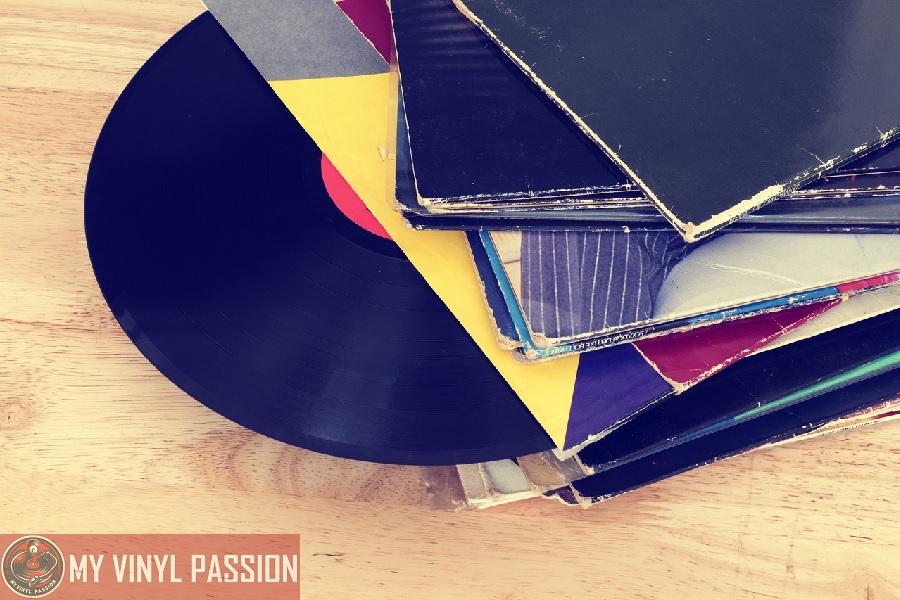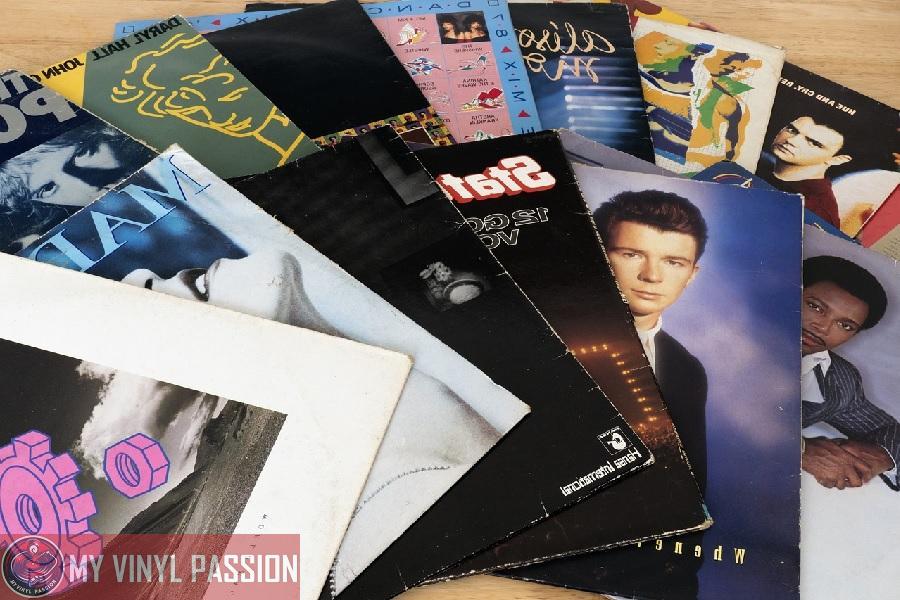Vinyl records have experienced a resurgence in recent years, with many music enthusiasts choosing to invest in record players and collections.
A question that often arises is whether vinyl records are environmentally friendly.
As a consumer, it’s essential to consider the environmental impact of your choices, including the types of music formats you support.
In Summary
Vinyl records involve the use of PVC, which has negative environmental impacts
The vinyl industry is adopting sustainable practices to minimize its ecological footprint
Comparing carbon footprints of vinyl and digital music is complex, with both formats having environmental impacts
The process of producing vinyl records involves the use of PVC (polyvinyl chloride), a plastic material that is notoriously difficult to recycle and has negative effects on the environment.
The vinyl industry has been working to adopt more sustainable practices and minimize its ecological footprint. Comparing the environmental impact of vinyl records to digital music is not a straightforward task, as digital streaming has its carbon footprint as well.
The Environmental Impact of Vinyl Records
Manufacturing Process and Materials
The primary material used in the manufacture of vinyl records is PVC (polyvinyl chloride), which is not regarded as an environmentally friendly substance. The vinyl production process generally involves toxic chemicals and produces greenhouse gas emissions.
Additionally, the manufacturing process makes use of vinyl off-cuts, which contributes to waste.
As a result, the carbon footprint of vinyl records can be significant when compared to other music formats. However, it’s worth noting that while streaming is a popular and often perceived “greener” alternative, it may not be entirely free from environmental impacts, such as energy usage for servers and data centers that store and transmit digital music files.
Waste and End-of-Life Disposal
Recycling old records is a challenging task due to the nature of PVC. Not only is vinyl difficult to recycle, but it also tends to end up in landfills, which results in a considerable environmental impact over time.
One of the issues you should be aware of is that vinyl decomposes very slowly, causing it to remain in the environment for an extended period. Furthermore, large retailers often require single-use plastic shrink-wrap to protect records during shipment, exacerbating the global plastic waste problem.
To summarize the environmental concerns related to vinyl records:
- PVC is a non-environmentally friendly material
- Production process generates greenhouse gas emissions
- Vinyl off-cuts contribute to waste
- Recycling old records is a challenge
- Slow decomposition in landfills
These factors, among others, contribute to the overall environmental impact of vinyl records. As a lover of vinyl, you should be conscious of these adverse effects and consider ways to reduce your impact on the environment.
Vinyl vs. Digital: Comparing Carbon Footprints
Physical vs. Digital Media
Before diving into the comparison between vinyl records and digital streaming, it’s essential to understand the materials involved in both forms of media.
Vinyl records are primarily made from PVC (polyvinyl chloride), a type of plastic that is not environmentally friendly and quite difficult to recycle.
Meanwhile, CDs, which are also a physical form of media, are made from polycarbonate plastic and have a smaller carbon footprint compared to vinyl records.
On the other hand, digital streaming platforms like Spotify do not use any physical materials. The environmental impact of digital streaming is greatly reduced because there is no need to manufacture, package, and transport physical copies.
This doesn’t mean that digital streaming is entirely eco-friendly.
Energy Consumption in Music Streaming
When it comes to digital streaming, CO2 emissions mainly result from the energy consumed by data centers and servers.
These facilities require huge amounts of electricity to operate, and depending on the source of the electricity, the carbon footprint can differ.
Here is a comparison of CO2 emissions for various music platforms, expressed as average grams of CO2 equivalent per listened hour (in grams):
- Vinyl Records : 140g
- CDs : 107g
- Spotify : 47g
Source:The Conversation
As you can see, digital streaming platforms like Spotify emit significantly lower CO2 emissions when compared to physical media like vinyl records and CDs.
But, it’s worth noting that as the total number of users and the hours they spend on streaming platforms increase, the overall emissions may also grow.
In conclusion, while vinyl records may not be the most environmentally friendly option due to their material composition and lack of recyclability, they still hold a place in music history and culture.
On the other hand, digital streaming platforms offer a more eco-friendly alternative with reduced CO2 emissions but still carry an environmental impact due to energy consumption.
By understanding the environmental implications of each option, you can make a more informed decision on the best music platform for both your listening pleasure and the well-being of our planet.
Sustainable Practices in Vinyl Production
Recycling and Use of Recycled Materials
As you may know, vinyl records are made from PVC (polyvinyl chloride), a material that is not very environmentally friendly and is difficult to recycle 1. However, sustainable practices can be employed in the manufacturing process to reduce the environmental impact.
One solution involves recycling vinyl records and using recycled materials. Some pressing plants have started to source and utilize recycled PVC in their production processes to minimize waste and promote sustainability.
Another approach incorporates recycled plastic into the vinyl records themselves, lessening dependence on virgin PVC.
Innovations in Eco-Friendly Manufacturing
Recent innovations have aimed to make the production of vinyl records greener. For instance, a group of eight Dutch companies developed an alternative production process using clean, low-energy injection moulding instead of the traditional pressing technique.
As a result, they managed to achieve a significant energy reduction of at least 60%.
Furthermore, some companies are exploring the use of renewable energy sources to power their manufacturing facilities, reducing their carbon footprint and transitioning towards more eco-friendly operations.
In addition to energy-saving efforts, research has been conducted on finding more environmentally friendly alternatives to PVC for vinyl production. One example is the machine in Eindhoven that avoids using PVC and replaces it with a less harmful material.
This development presents a potential future where vinyl records can continue to be in demand but with a minimized environmental impact.
By supporting these sustainable practices, you can contribute to a greener future in the world of vinyl records.
The Role of Music Industry Stakeholders
Record Labels and Environmental Responsibility
As a music enthusiast, you’re probably aware that the resurgence of vinyl records has sparked concern over their environmental impact. Many record labels are now taking steps to address these concerns and promote more sustainable practices in vinyl production.
One example is Ninja Tune, a UK-based independent record label that has been at the forefront of implementing greener alternatives in their vinyl production process.
Their managing director, Peter Quicke, has acknowledged the need for the industry to minimize its environmental footprint, working to develop vinyl-made from recycled PVC and using water-based inks for packaging.
Consumer pressure also plays a significant role in encouraging record labels to adopt environmentally responsible practices. As listeners become more environmentally conscious, they increasingly demand sustainable products and processes from the music industry.
Consequently, labels have responded to this call for change, translating to greener output.
Artists Promoting Sustainability
In addition to record labels, many artists actively promote sustainability within the music industry. Nick Mulvey, a British musician, is a notable example. He has partnered with Ninja Tune and other organizations to create innovative solutions that minimize the environmental impact of vinyl records.
By working with record labels and pressing plants, artists like Mulvey are encouraging a more eco-friendly approach to vinyl production. Their engagement in sustainability initiatives serves as a powerful example for other musicians, inspiring them to incorporate eco-consciousness into their own work and business practices.
In conclusion, both record labels and artists play a pivotal role in pushing the music industry towards more environmentally friendly practices. Through innovation, consumer demand, and a commitment to sustainability, they are guiding the industry in a greener direction.
Alternatives to Vinyl for Eco-Conscious Consumers
Digital Music Platforms
One alternative to vinyl records is digital music platforms. These platforms offer a more environmentally friendly option as they don’t require physical materials for distribution, reducing the carbon footprint.
As a music enthusiast, you can enjoy your favorite tunes while being mindful of the environment. Some popular digital platforms include Spotify, Apple Music, and Amazon Music.
By subscribing to such services, you’re not only given access to a vast music library, but also supporting a more sustainable approach to consuming music.
Eco-Friendly Physical Media Alternatives
If you prefer tangible formats for your music collections, there are eco-friendly physical media alternatives to vinyl. These options provide a more sustainable choice without compromising on the physical aspect of music ownership.
- Biodegradable CD cases: Traditional jewel cases are made from non-recyclable material, whereas biodegradable CD cases are made from recycled materials and can decompose over time. This reduces plastic waste and helps protect the environment.
- Cardboard packaging: Opt for cardboard packaging instead of traditional plastic cases, as it is both recyclable and biodegradable. It’s a greener alternative, requiring less energy for production and disposal.
- Environmentally friendly vinyl alternatives: Some companies are starting to develop eco-friendly alternatives to traditional vinyl records, using clean, low-energy injection moulding processes that can achieve a significant energy reduction of at least 60%. It’s definitely worth looking into these innovative options if you’re an environmentally conscious music lover.
By choosing digital platforms or eco-friendly physical media alternatives, you can enjoy your music collection while minimizing your environmental impact. This way, you’ll be playing your part in preserving the planet for future generations of music lovers.
Environmental Regulations and Industry Standards
EU Directives and Global Agreements
In recent years, the European Union has taken significant steps to address the environmental concerns arising from vinyl records production.
One such initiative is the Waste Electrical and Electronic Equipment Directive (WEEE) which targets the reduction of waste generated through record manufacturing.
Moreover, the EU Ecolabel encourages companies to adopt greener production methods by certifying products that have a reduced environmental impact.
Additionally, global agreements such as the Paris Agreement work towards curbing greenhouse gas emissions, putting pressure on industries across sectors, including the vinyl revival, to adopt more sustainable practices.
These efforts aim to address the carbon footprint of vinyl production and minimize its adverse environmental effects.
Company Policies and Green Certifications
On a company level, many record companies are stepping up their environmental responsibility efforts.
The British Phonographic Industry (BPI), for instance, promotes environmental sustainability through its Music Declares Emergency campaign, encouraging the industry to work together in reducing its ecological impact.
It is becoming increasingly common for companies within the vinyl record industry to adopt eco-friendly policies, including the use of recycled materials, reducing energy consumption, and minimizing waste generated during production.
This aligns with the increasing consumer demand for sustainable products. Furthermore, green certifications such as the Forest Stewardship Council (FSC) provide reassurance to buyers about the environmental credentials of the records they purchase.
In conclusion, while vinyl records are still not a perfectly environmentally friendly product, the industry is working to address its sustainability issues through various regulations, initiatives, and certifications, with an ultimate goal to reduce its impact on the environment.
Community and Consumer Involvement
Environmental Advocacy Groups
Several environmental advocacy groups are working to address the environmental impacts of vinyl records.
One example is Surfers Against Sewage, a UK-based organization that launched the “Ocean Vinyl” initiative, which involves creating vinyl records using waste plastic collected from the ocean.
This initiative not only helps clean up the ocean but also promotes the use of recycled materials in vinyl production.
Other organizations promote eco-friendly practices within the vinyl industry, including the recycling of PVC and using sustainable packaging. For example, some vinyl manufacturers have started using recycled cardboard for album covers, reducing their overall environmental impact.
Consumer Choices and Market Trends
Your choices as a consumer play a significant role in shaping the vinyl industry, thus directly affecting the environment. A noticeable trend is the increase in vinyl sales among younger audiences who have a higher awareness of environmental conservation.
You have the power to make a difference by choosing:
- Reduce: Limit your vinyl purchases and explore other eco-friendly ways to enjoy music, such as streaming or digital downloads.
- Donate: If you have old vinyl records or equipment, consider donating them to local music organizations or schools to extend their useful life and prevent them from ending up in landfills.
- Recycle: Educate yourself about PVC recycling programs in your community and recycle your vinyl records whenever possible.
You can encourage the vinyl industry to adopt greener practices by supporting manufacturers that prioritize sustainability and eco-friendly production methods, such as using recycled materials and reducing waste in the manufacturing process.
By working together with environmental advocacy groups and making mindful consumer choices, you play an important role in making the vinyl industry more environmentally friendly.
The Future of Vinyl in an Eco-Friendly World
As a vinyl record collector, you might be concerned about the environmental impact of this medium. Vinyl records are made of PVC (polyvinyl chloride), which is not the most environmentally friendly material.
The future of vinyl in an eco-friendly world looks promising, thanks to advancements in recycling techniques and increased consumer awareness.
Sustainability is becoming a significant aspect of vinyl production. With the increasing popularity of the vinyl revival, manufacturers are taking the necessary steps to become more environmentally friendly.
One example is the introduction of green vinyl records, made from recycled PVC or alternative eco-friendly materials. These initiatives can help reduce the carbon footprint of vinyl production and contribute to a greener music industry.
Consumer pressure plays a vital role in transforming the vinyl record landscape. As consumers become more conscious of their environmental choices, they look for recycled and recyclable vinyl records.
The annual Record Store Day event also has the potential to encourage eco-friendly practices in the industry, promoting sustainability in both production and packaging aspects.
In response to the growing demand for sustainable vinyl, educational institutions like Keele University are conducting research to find more sustainable alternatives to PVC-laden records.
Dr. Sharon George, an environmental expert from the university, emphasizes the need for a systemic change in the vinyl industry’s environmental footprint.
Another essential factor to examine is the artwork that accompanies your favorite vinyl records. Sustainable packaging materials and eco-conscious designs can also contribute to a greener production process.
As a consumer, you can make informed choices by supporting artists and labels that prioritize environmentally friendly practices in their music production.
By becoming more aware of the impact of your vinyl collection and supporting sustainable practices in the industry, you can play a crucial role in shaping the future of vinyl records in an eco-friendly world.
Frequently Asked Questions
What are the environmental impacts of vinyl record production?
Vinyl records are typically made of PVC (polyvinyl chloride), which is not very environmentally friendly due to its difficulty being recycled and the energy-intensive production process. The production method also contributes to greenhouse gas emissions, having a further negative impact on the environment.
How does the use of petroleum in vinyl records affect the environment?
The production of PVC for vinyl records relies on petroleum, a non-renewable resource. The extraction and refining of petroleum have numerous environmental consequences, including air and water pollution, habitat destruction, and contributions to climate change through the release of greenhouse gases.
Is the material in vinyl records toxic and how does this impact ecological systems?
PVC contains additives like phthalates, which can potentially be harmful to both humans and wildlife. The production and disposal of PVC can release hazardous substances into the environment, leading to the contamination of air, water, and soil. This can result in the disruption of ecosystems, posing a risk to the health of plants and animals.
In comparison to digital media, what are the environmental advantages or disadvantages of vinyl records?
Digital media has some environmental advantages over vinyl records, including less resource consumption and energy use during production. Additionally, digital files do not produce harmful waste during disposal. However, digital streaming and storage require significant energy input for maintaining servers, thus contributing to energy consumption and greenhouse gas emissions. Vinyl records, on the other hand, are physical objects with a finite lifespan, and can have a greater sentimental or aesthetic value to collectors.
Can vinyl records be recycled or disposed of in an eco-friendly way?
Recycling vinyl records can be challenging due to the PVC material they are made from. However, some companies and organizations have made efforts to develop recycling programs specifically for vinyl records. Additionally, you can repurpose old vinyl records into new items, such as clocks, bowls, or artwork, to extend their lifespan and reduce waste.
Are there sustainable alternatives to traditional vinyl records?
Yes, there are efforts to produce sustainable alternatives to traditional vinyl records. For example, a collaboration of Dutch companies has developed an environmentally friendly vinyl record production process that uses clean, low-energy injection moulding instead of pressing. This alternative method can lead to a reduction of at least 60% in energy consumption during production, making it a more eco-friendly option.





